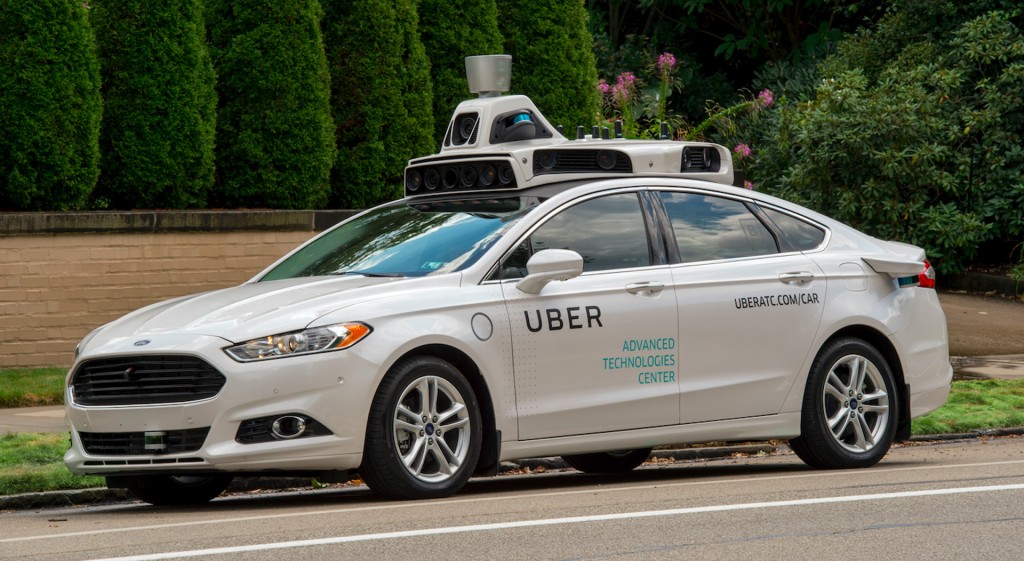
Prototype from Uber’s fully autonomous ride-sharing fleet
Uber on Tuesday started allowing users of its popular ride-sharing service to hail rides from its autonomous prototypes currently testing in Pittsburgh, Pennsylvania.
It’s not the first autonomous ride-sharing service—that honor goes to fellow American firm nuTonomy, which started a similar service in Singapore in August—but the scale of Uber’s plans appear to be the most ambitious. Uber also has a current valuation of over $60 billion.
Uber in August entered a $300 million deal to source autonomous prototypes from Volvo based on the automaker’s XC90 SUV. And according to Uber, this is just the start of a longer term industrial partnership between the two firms. In addition, Uber already has users in more than 500 cities across the globe.
Only Uber’s most loyal users can hail a ride from one of the autonomous prototypes at present. A human driver is also behind the wheel to take over in the case of an emergency or bad weather—even Uber admits the technology is still in a “very early” phase.

Prototype from Uber’s fully autonomous ride-sharing fleet
Uber’s current autonomous prototypes, based on the Ford Motor Company [NYSE:F] Fusion, feature the ride-sharing giant’s own self-driving hardware and software systems. They have been testing on Pittsburgh’s roads since May 2016. Pittsburgh is home to Uber’s Advanced Technologies Center and features a wide variety of road types, traffic patterns and weather conditions that make it an ideal spot to develop autonomous cars.
In addition to offering rides, Uber is also looking at introducing autonomous transport of goods. It recently acquired autonomous truck startup Otto which is developing technology that can be licensed to truck manufacturers or turned into kits that can be retrofitted to existing trucks to make them autonomous.
Uber is not alone in its quest to offer autonomous ride-sharing. Google is developing its own autonomous car technology and launched its own ride-sharing service Waze Rider, though the search engine giant’s progress has been slow and it recently lost some key people including the head of its self-driving team Chris Urmson. There’s Apple, too, which is thought to be developing its own autonomous technology and in May invested $1 billion in Chinese ride-sharing giant Didi Chuxing.
The major automakers are also taking an active role. For example, General Motors Company [NYSE:GM] has teamed up with Uber-rival Lyft and could start its own autonomous ride-sharing service in Michigan this year. And Ford in August said it will have an autonomous car ready in five years and may even be selling it to the public by 2025. Major European automakers BMW, Jaguar Land Rover, Mercedes-Benz, the Volkswagen Group and Volvo are also working on autonomous cars.
